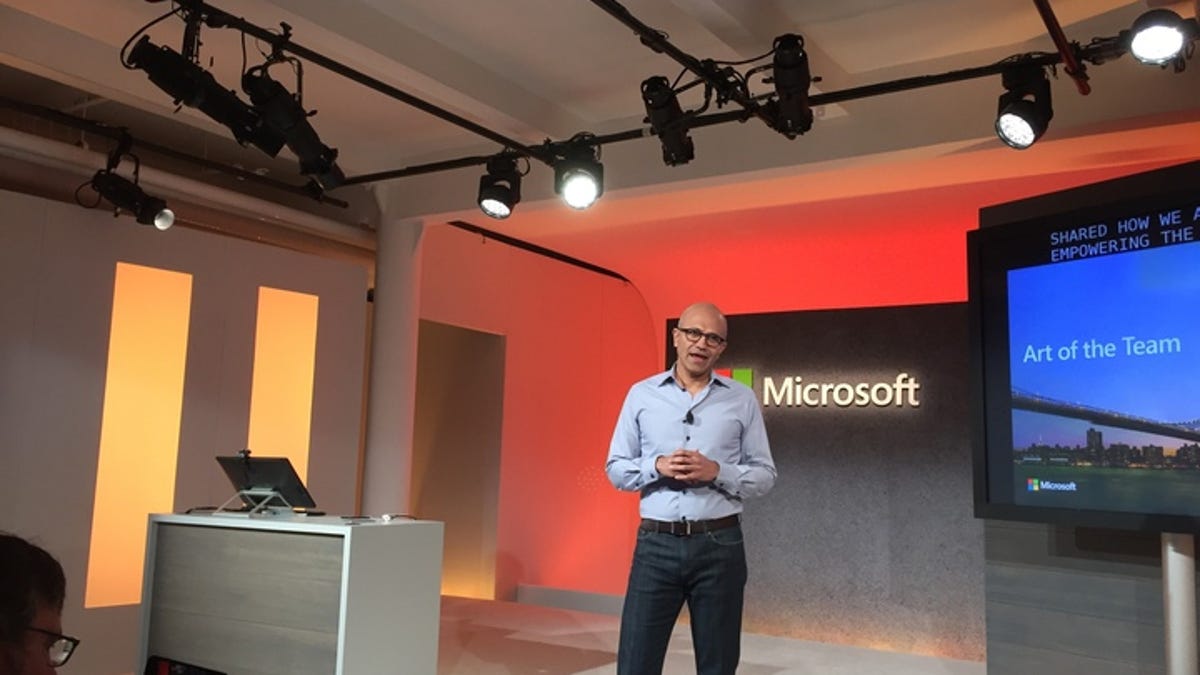Microsoft Teams challenges Slack for office dominance
Who will win the workplace-chat war? Microsoft is going head-to-head with Slack and Facebook.
Chatting and collaborating with colleagues used to be all about watercoolers and whiteboards. These days it's more about videoconferencing, email and at least one form of instant messaging.
Microsoft is the latest company to jump on the work-chat bandwagon with the launch of Teams at a New York event Wednesday. Teams brings together chats, notes and planning with the intention of being a standalone, catchall tool to promote good organization and productivity in offices, no matter what type of project people are working on.
The focus of the launch was on collaboration, bringing together the communications expertise of Microsoft's Skype division with the work-habits knowledge of its Office unit. Teams supports threaded chat, personalization and Office 365 integration. It also has companion apps for iOS, Android and Windows Phone.
"This is an experience that truly empowers that art form of how teams work and how teams drive success," said Microsoft CEO Satya Nadella.
Microsoft isn't the only company to show off a Slack rival in recent weeks. Last month at an event in London, Facebook unveiled Workplace by Facebook, a work-based collaboration and chat room platform. The success of Slack, which boasts more than 3 million daily users at last count, shows there's huge demand for such services.
Unlike with Slack, in Teams you can reply to messages by creating threads.
Microsoft hopes to set Teams apart with features that bring Office 365 tools into the service. You can autosave attachments to folders for each stream, pin frequently used files to your dashboard, integrate your planner or task manager and use third-party plug-ins like Zendesk.
Robots also play a key role in the operation of Teams, including T-bot, an intelligent assistant, and Who Bot, which is designed to answer questions about who does what in your organization.
Microsoft is rumoured to have mulled buying Slack earlier this year for $8 billion (the company declined to comment on this at the time), but neither Nadella nor company founder and advisor Bill Gates was reportedly convinced it was a smart buy, preferring instead to focus efforts on its own Skype.
On Wednesday, in a full-page ad it took out in The New York Times and also published online, Slack acknowledged it now has "some competition," and it spoke to its rivals.
"It's validating to see you've come around to the same way of thinking," the company said. "We want to give you some friendly advice."
The ad was Slack's attempt to remind the world why it has become so successful. But the fact it was put out there in the first place may also suggest the company is feeling jittery at the challenge from Microsoft.
A preview of Teams is available immediately in 181 countries in 18 languages. Microsoft plans to release the full version sometime during the first three months of next year.


